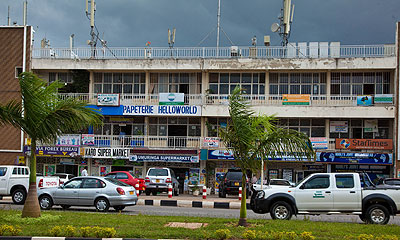Parliament on Monday passed the Bill on management of abandoned properties, sending it to the Senate for final scrutiny.


Parliament on Monday passed the Bill on management of abandoned properties, sending it to the Senate for final scrutiny.
The abandoned property Bill seeks to streamline the management and utilisation of abandoned properties.
Properties categorised as abandoned are those illegally possessed by people due to the fact that the rightful owners either died without leaving a legally recognised heir or reside outside Rwanda for various reasons. The new law seeks to replace the one that was enacted in 2004.
During a debate on Monday afternoon, Public Accounts Committee (PAC) chairperson, Juvenal Nkusi said the old law was weak and had many loopholes.
"The 2004 law established a commission charged with following up on and managing properties abandoned as a result of the 1994 Genocide against the Tutsi but the work done by the commission is very disappointing,” he said.
"The new Bill widens the scope of how data on abandoned property can be recorded and this time around, the process begins from the village level,” Nkusi told MPs while tabling the revised Bill before the August House.
However, MP Julianna Kantengwa questioned the practicability of the Bill, arguing that some people occupying abandoned properties are the very people responsible for the death of the rightful owners.
"There are cases of people who wipe out whole families during the Genocide and took possession of the houses of the victims. I doubt whether such people will give up the properties,” she said.
MP Adolphe Bazatoha asked for assurance that the new Bill will change the procedure of identifying abandoned properties.
"There are people whose properties were grabbed by relatives and authorities have done little to return it rightful owners,” Bazatoha said.
Nkusi admitted that the concerns were serious and needed attention.
"There are many land titles still held at the local authorities’ offices due to disputes. These conflicts are either family-related or involve people occupying properties that do not belong to them. This is one way that can be used in identifying the rightful owners of these properties,” said Nkusi.
The 25-article Bill stipulates that sector authorities shall coordinate the conduct of inventory of abandoned property at the cell and village levels while specifying its number, former owners, reasons for abandonment, its managers, its present condition and the purposes for which income derived from such property is used.
The inventory report is submitted to district authorities, who in turn shall submit it to the district council for approval. District authorities submit it to the Ministry of Justice.
Restitution
Article 10 of the Bill says that if the owner of the property shows up and provides sufficient evidence of ownership, the property shall be restituted them.
The Bill also instructs the government to rent out and maintain abandoned properties.
The properties to be rent out are those that once belonged to either a deceased person or an individual who cannot be traced.
Another category of abandoned properties include those managed by people who do not have authorisation from the rightful owner.
The current law, which was enacted in 2004 was restricted to assets whose owners might have died and left no next of kin.
However, the new law widens the scope to include all properties movable and unmovable.
Last year, the Ministry of Justice informed Parliament that the 2004 law establishing bodies in charge of abandoned properties limited them to the district level, leaving a vacuum at the grassroots.
The Cabinet on September 2009 recommended the establishment of a department in charge of the abandoned property.


